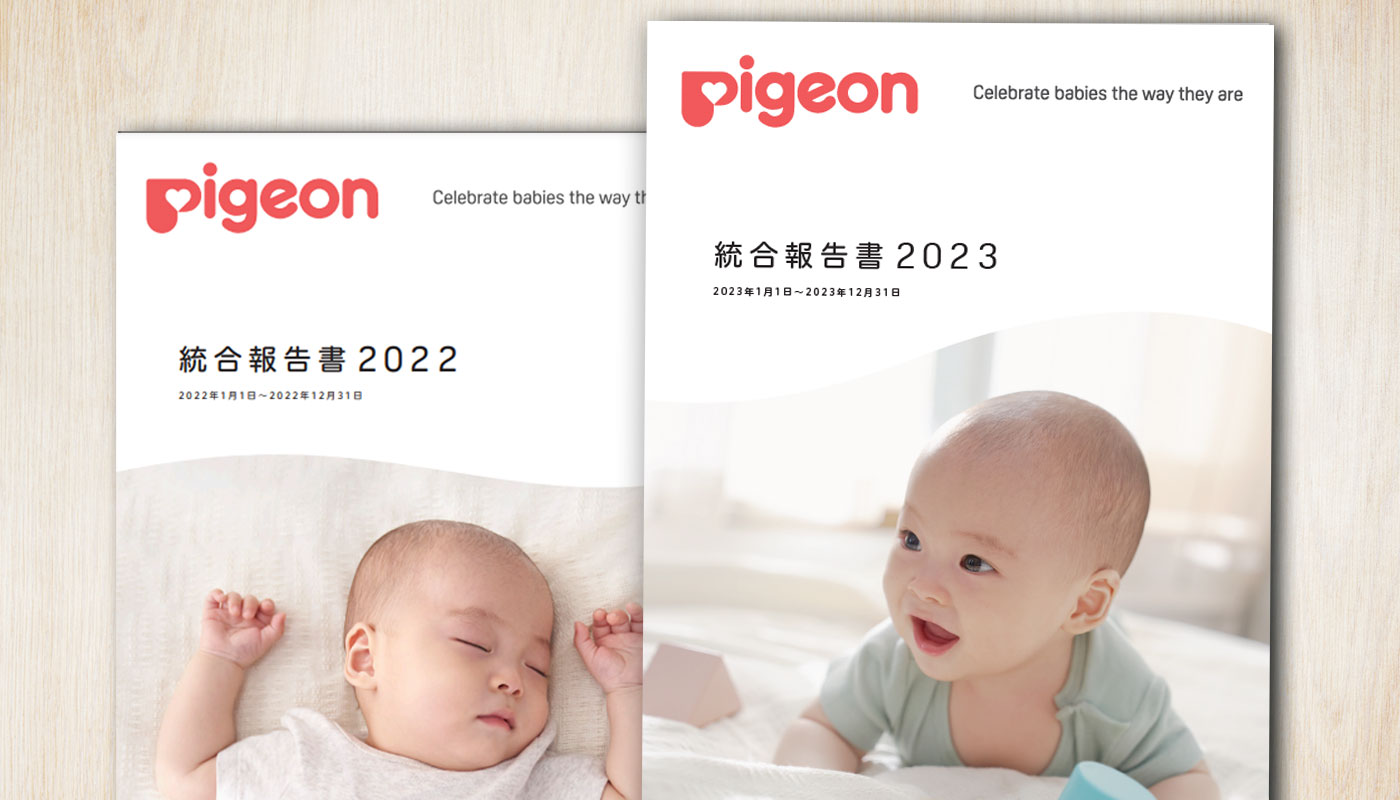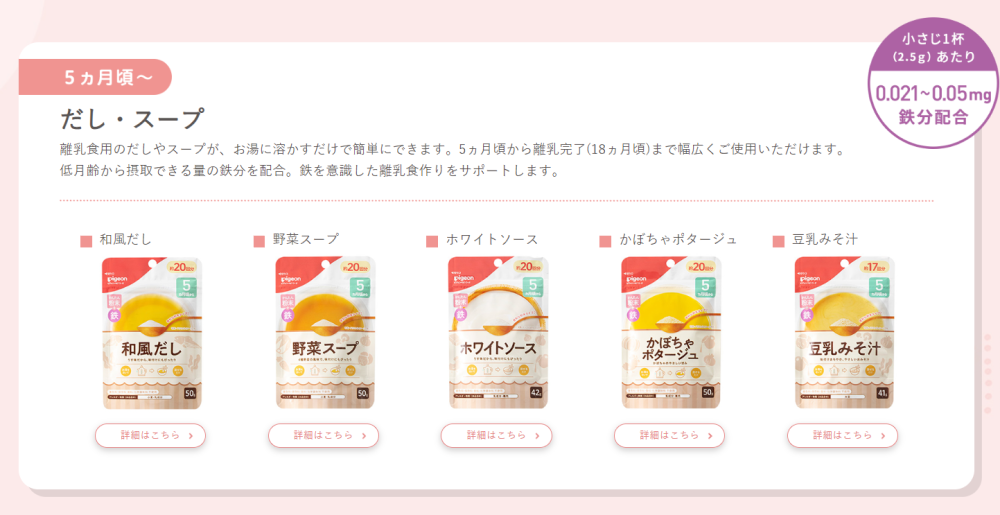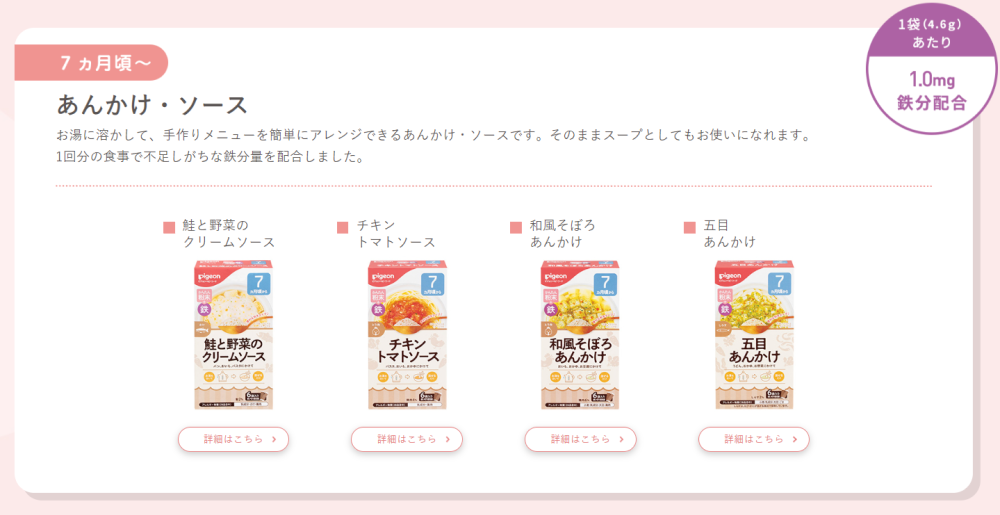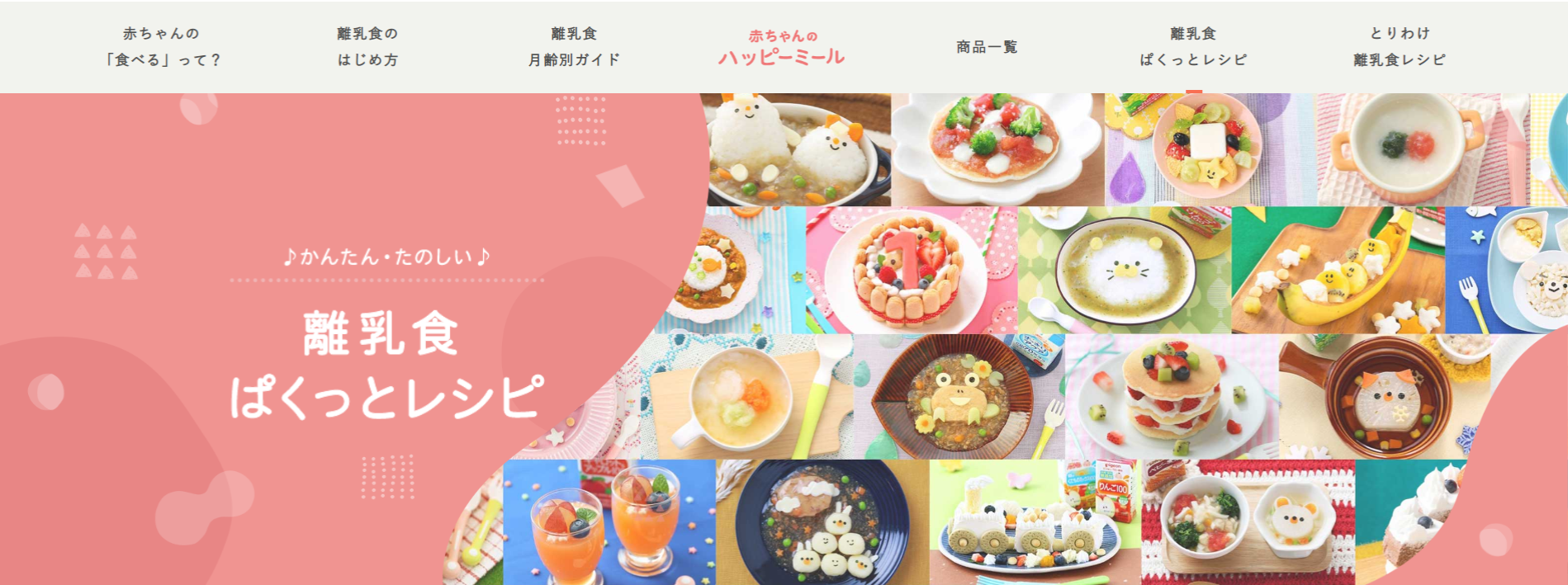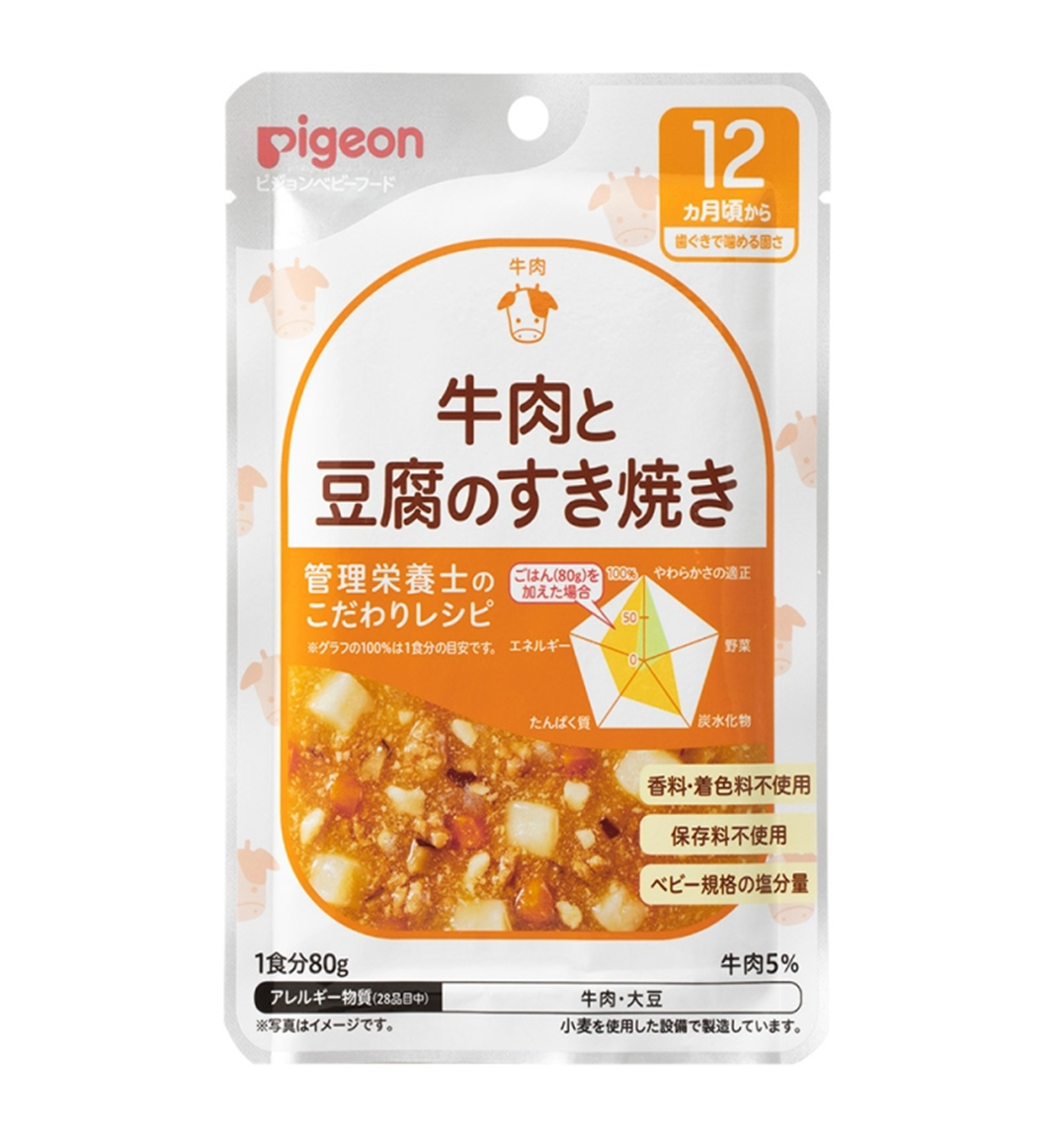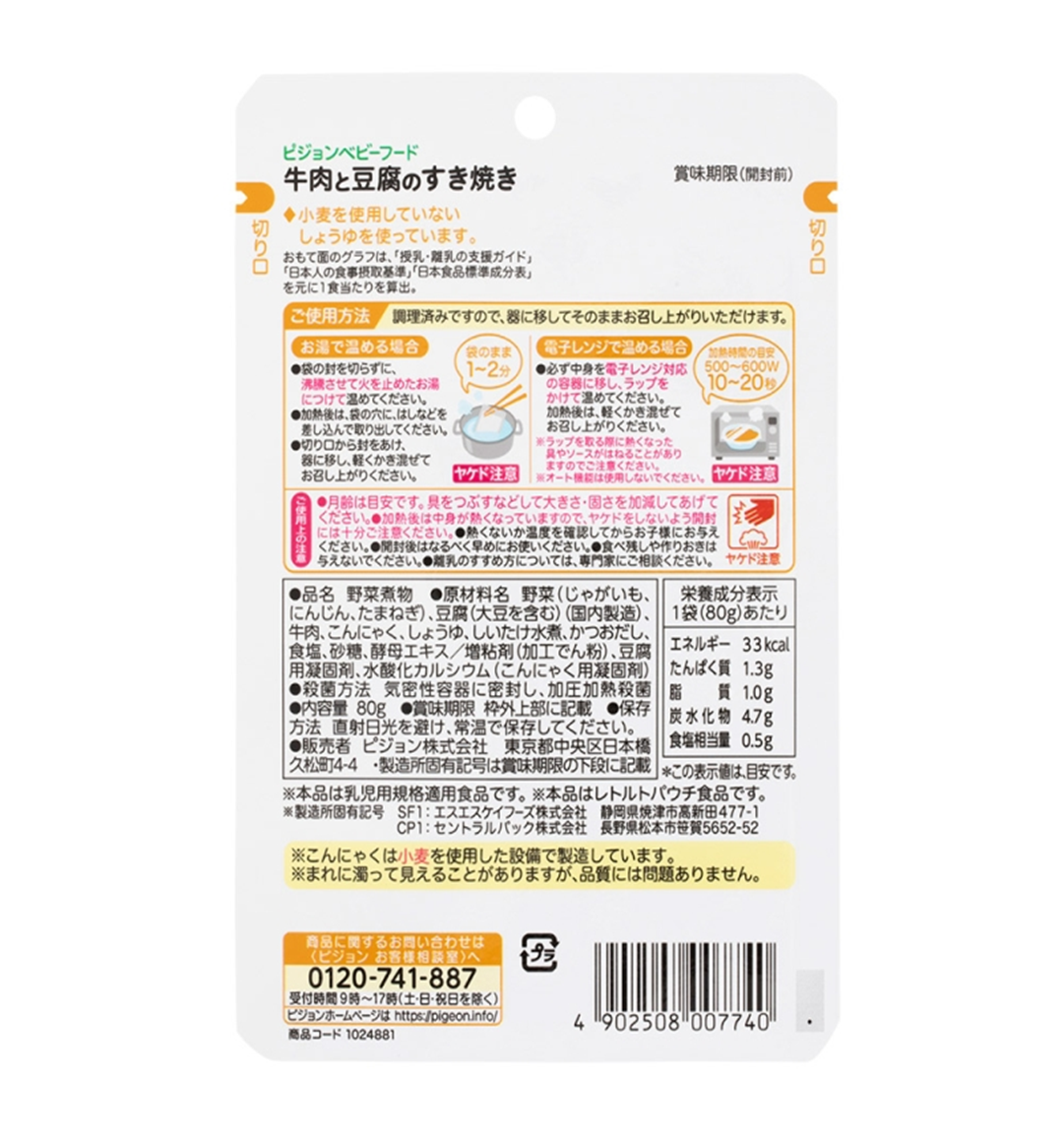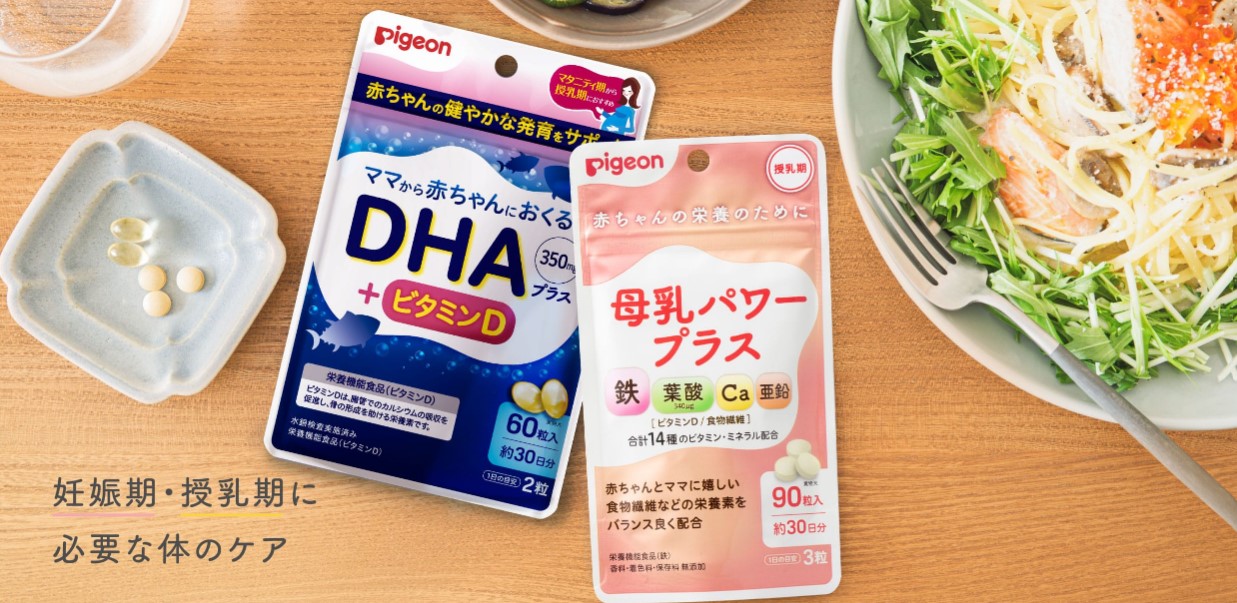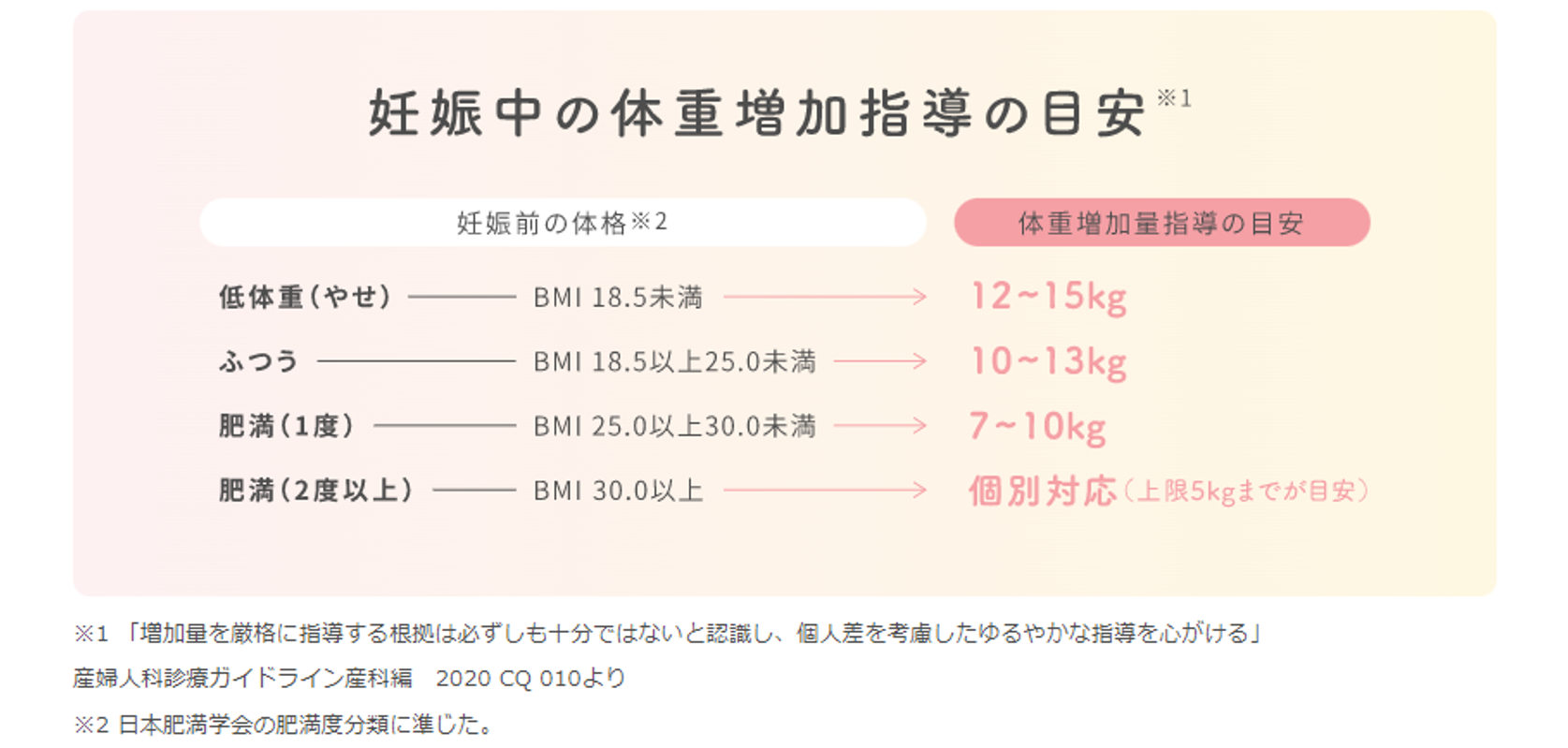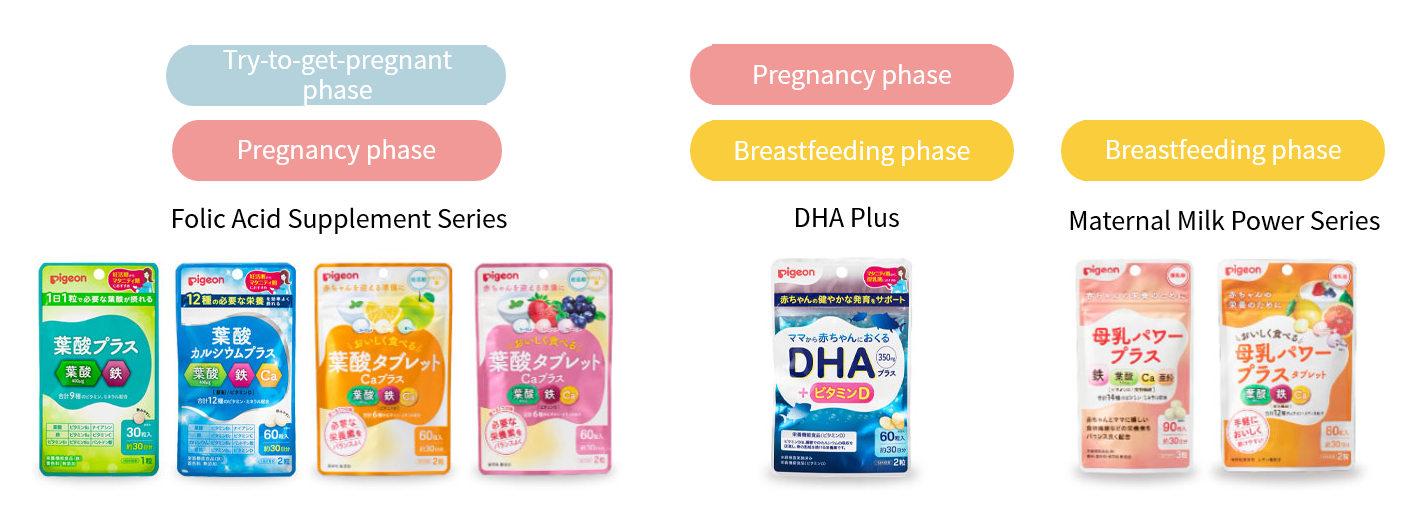Basic Approach
The lactation and weaning periods are critical to the health of the baby, and it is important to ensure that the baby receives adequate nutrition according to his or her developmental needs.
Weaning should be done in stages according to the baby's growth stage in order to supplement the energy and nutrients that are lacking in breast milk and formula alone as the baby grows.
Aiming to contribute to the healthy growth of babies, we plan, develop, produce, and sell baby foods, baby beverages, and baby snacks at affordable prices to reduce the burden of preparing and cooking baby food menus for families raising children while providing nutritional supplements for babies' development with peace of mind, and provide information to eliminate concerns or problems related to weaning.
Infants and young children to whom we provide those products have not yet developed oral functions such as chewing and swallowing, digestive and absorption functions, and kidney functions related to metabolism, etc. The quality of the food products we offer is based on medical and nutritional science, with due consideration given to physical properties, hygiene, and nutritional aspects. In order to maintain and improve the quality of our products such as baby food, baby beverages, and baby snacks, we provide products that comply with the voluntary standards set by the Japan Baby Food Council (hereinafter referred to as "voluntary standards"). We also participate in the Japan Baby Food Council as one of the operating companies, contributing to the improvement of quality in the industry as a whole.
< Voluntary Standards of Japan Baby Food Council >
Improving Nutrition of Babies
The nutrition of babies needs changes as they proceed from one growth stage to the next. At Pigeon, we develop baby foods from a wide range of carefully selected ingredients to deliver a balanced mix of those nutrients.
In the development of our products, we follow the voluntary standards set by the Japan Baby Food Council for baby food, baby beverages, and baby snacks, respectively. These voluntary standards define "product standards," "product testing methods," "quality standards for containers and packaging," and "labeling", including advertising. In terms of quality, the standards for sodium content, physical properties and hygiene from a medical and nutritional standpoint, as well as suitability for infants and young children. In addition to complying with these voluntary standards, we provide baby foods that take into consideration the size, firmness, thickening, and seasoning of ingredients according to the developmental stage of the baby so that even babies with immature masticatory functions can chew and swallow without difficulty. For baby snacks, we take into consideration the salt and sweetness so as not to interfere with the taste development of infants and toddlers.
Sodium Content Limit
- 200mg or less per 100g in case of foods for infants up to 12 months of age
- 300mg or less per 100g in case of foods for infants over 12 months of age
- Addition to fruit is not permitted
*Excerpts from Voluntary Standards for Baby Food
Physical Properties at Ingestion
Physical properties at ingestion should be in one of the following states,
・Uniform liquid state
・Smoothly mashed
・Firm enough to be crushed by the tongue
・Hard enough to be crushed by gums
・Firm enough to chew with gums
*Excerpts from Voluntary Standards for Baby Food
Iron Intake that Is Often Deficient in Babies
Iron is a nutrient that is very important for the growth and development of babies, but breastfeeding makes it easy for babies to become deficient during the weaning period, and prolonged deficiency is said to affect brain and nerve development.
As a solution to this problem, under the supervision of experts, we have added iron to our series of products for infants from around 5 months of age, making it easier and more effective for babies to consume the iron they need.
Measures for Quality and Safety
From the viewpoint of quality and safety, we participate in the Japan Baby Food Council and conduct product testing (analysis of nutritional components, etc., and testing for microorganisms, heavy metals, residual pesticides, exogenous endocrine disrupting chemicals, radioactive substances, etc.) in accordance with voluntary baby food standards to confirm safety. In addition, in accordance with Pigeon's own PQS (Pigeon Quality Standard), the quality of our baby food is rigorously checked for allergens and foreign substances that could pose a food safety risk, and only high-quality, safe ingredients are used. We also carefully consider the shape and physical properties of the product contents when designing products, confirm quality safety through storage tests, and analyze the product contents, containers, and packaging from multiple perspectives to ensure that there is no possibility of injury or accident during use, thereby reducing risk and providing consumers with greater peace of mind.
Selection of Safe Raw Materials
We rigorously check the condition of its quality control on substances that affect food safety, such as agricultural chemical residues, microbes, allergens and impurities, adopting only raw materials that are safe and of high quality. We have devised its systems so that all information on the raw materials used in products is managed via a database, enabling prompt and accurate provision of information when customer inquiries are received.
Product Design and Safety Confirmation
To ensure the safety of Pigeon food products, We scrupulously check the shape and physical properties of foods at the development and design stages. We also strive to reduce risk by examining the contents, containers, and packaging of our products from multiple perspectives to pinpoint any possibility of injury or accident during use. Moreover, We also conduct regular audits of all cooperating manufacturers to whom it entrusts production and works continually with all cooperating manufacturers to support quality control systems at required levels and promote improvements.
About Food Additives
The use of food additives is restricted to a minimum, and only when essential, by voluntary standards.
In addition, the permitted use of food additives, flavors, and nutritional enhancers (reinforcers) are also specified for baby foods, beverages, and snacks in the voluntary standards.
< Voluntary Standards of Japan Baby Food Council for Food Additives >
Communication with Customers
In order to protect our customers' proper product selection and ensure fair competition, we adhere to not only the legally mandated labeling requirements but also to the standards regarding labeling set forth in the voluntary standards as our guidelines. It includes indications of the standard amount per serving to prevent consumers from overconsumption, target months of age enabling consumers to choose products according to their baby's stage of development, and warning labels for any type of risk of dangers to consumers due to the use, handling or cooking of the product. period of the product.
Advertising and Marketing Guidelines
In order to prevent misleading consumers through our advertising and marketing activities that our products are superior to breastfeeding or bottle feeding, etc., we have made it a rule that if a product is likely to be used in a way that interferes with breastfeeding or bottle feeding, we must include a statement on the label that draws attention to the appropriate use and the fact that the product does not interfere with breastfeeding or bottle feeding.
Disseminating information to customers
As a means of disseminating information to customers, our website offers information such as a guide for each month of the age group of babies and simple and fun baby food recipes, with the aim of helping families who are weaning their children from baby food to resolve any concerns or problems they may have and to help babies experience the joy of eating.
If a baby’s meal consists only of baby food, depending on the menu, the baby may not receive the necessary nutritional balance. It is said that the tastes cultivated and eating plans followed during infancy may affect the dietary habits of a lifetime. This means that, for children of this age, nutritionally balanced meals are vital. We believe that it is important to provide our customers with information on how to add a few ingredients to our products to improve nutritional balance when preparing meals at home. On our websites and social media, we provide information on recipes that are well-balanced and can easily be prepared at home.
Packagings and Labelings
Pigeon takes great care in devising informative and effective packaging. We not only design the packaging of our retort-pouch products according to product-description standards but also carefully analyze the information consumers are most careful to confirm when purchasing weaning foods. In this way we ensure that customers can choose the right product from a wide variety of choices.
The information displayed on the front of the package
Recommended age in months for use
- The recommended age in months for use is indicated on the front of the package in large, highlighted letters.
Size and hardness of the food
- In addition to the recommended age in months for use, the size and hardness of the ingredients are also indicated according to the developmental stage of the baby’s chewing ability.
Nutritional balance
- A radar chart is used to compare the nutritional balance between the nutrients that can be obtained from a single baby food product and the nutritional balance when a staple food is supplementarily added at home. In this way, we clearly show that nutritional balance is improved when a staple food is added. (Retort Pouch series)
Food allergens
- In addition to the 7 specified ingredients that are required to be displayed by law, our packaging displays all 21 items specified for optional display that are contained in the product.
The information displayed on the back of the package
Expiration date
- The expiration date, by which the product should be consumed if stored unopened, is indicated. To reduce food losses, the former practice of expressing the expiration date as date/month/year is replaced with the month/year date.
How to use
- The packaging uses illustrations to describe how to heat the product if the customer chooses to do so.
- Warnings are prominently displayed, to prevent burns and other injuries that may occur while heating the product.
Ingredients
- Ingredients are listed separately from additives in order of relative quantity from greatest to least.
Net content
- Net weight, volume, and quantity are all listed.
Quantity and calorific value of nutrients
- The quantity and calorific value of each nutrient per serving are displayed.
Names and addresses of production and processing sites
- The names and addresses of the production and processing suppliers for Pigeon products are listed.
Contact information
- The packaging displays the telephone number and hours of operation of Pigeon’s Customer Service Center, for customers to contact in case of questions, inquiries or concerns.
Products that Support Important Nutrients for Babies’ Futures
Pigeon offers a wide range of supplements to support women’s nutrition from the period when they are trying to get pregnant, through pregnancy, and into the breastfeeding phase. These supplements are designed from the perspective of child development and health management for mothers. They include folic acid, DHA, iron, calcium, and zinc.
In addition to products, we actively strive to provide pregnant and breastfeeding women with vital information through various media. Feelings of unease are particularly common early in pregnancy, so we prepare and widely share information based on Ministry of Health, Labour and Welfare guidelines, along with content supervised by doctors, to ensure that clear and accurate information reaches the women who need it most.
Pigeon's Supplement Series
Other Initiatives to Contribute to Babies’ Healthy Growths
Pigeon is committed to contributing to the healthy growth of newborns and infants. To this end, Pigeon provides information, products, and services and engages in a wide range of supporting activities in countries and regions where we operate businesses.
Supporting breastfeeding for babies and mothers
Breastfeeding is important for babies and mothers. Breast milk contains all the nutrients needed to support the growth and development of babies up to six months of age and strengthens the baby’s immune system and protects against infection. Breastfeeding is the first choice for the baby’s growth and development. With this in mind, Pigeon commits to supporting breastfeeding and encourages breastfeeding through both its products and services.
Support for Human Milk Banks
As part our activities for babies and families in need of specialized care, we support human milk banks in Japan, China, Indonesia, Vietnam, and elsewhere. These facilities collect breast milk donations, pasteurize them at low heat for safety, and provide the breast milk to babies with very low birthweight (less than 1,500 g at birth) whose mothers are unable to provide enough breast milk to them due to illness or lactation issues. In September 2020, we provided comprehensive support for the Nihonbashi Human Milk Bank, the second of its kind in Japan at the time, which opened on the first floor of our Head Office. In 2021, we engaged in promotional activities to raise awareness of human milk banks, including serving as the facilitator of a roundtable discussion for donor milk recipient families led by the Japan Human Milk Bank Association. Based on the results of the discussion and a survey conducted by Pigeon, in 2022, we compiled the Donor Milk Recipient Brochure and started providing it free of charge to hospitals using donor milk with the aim of deepening understanding and eliminating reservations around the use of donor milk. The brochure outlines the safety and efficacy of donor milk and includes accounts from families who have used it. This helps to supplement knowledge gaps and assist families in making informed decisions regarding the use of donated breast milk. Since 2020, we have conducted the “#Saving Tiny Lives” campaign whereby a portion of proceeds from designated products such as nursing pads and breast milk freezer packs is donated to the Japan Human Milk Bank Association. The campaign has received strong support, and we have donated approximately ¥10 million over three years.
Initiatives for Babies Who Need Special Care
Committed to enabling all babies to enjoy better sucking, Pigeon conducts joint research with neonatal intensive care units (NICUs) at hospitals and clinics and works in other ways to develop exclusive products so that infants with low birth weight or disabilities can drink breast milk and packaged milk with minimal effort. These include a nursing bottle for babies with cleft lips and/or palates, a feeder with a long silicone nipple, and nursing nipples for babies with weak sucking. We also offer a special Preemie Care pacifier for babies born prematurely to help ease the pain of treatments and procedures. In 2021, we introduced a new disposable bottle exclusively for breast milk storage and pasteurization that enables safer and more hygienic storage of breast milk in human milk banks. In 2022, we launched Precious Drop, a device that supports the collection of colostrum from mothers to ensure that premature and low birthweight babies get as much of the mother’s precious colostrum as possible, specifically for clinics and maternity wards. Also, in China, we developed a special oil for low birthweight babies to alleviate issues caused by underdeveloped skin. Our accumulated expertise, gained from our constant support of babies in need of specialized care, is reflected in general product development activities and is directly linked to the superior performance of Pigeon-brand products.
Supporting activities for cleft-lip-and-palate babies
We conduct activities to support children with cleft lip and palate in many countries. By collaborating with Operation Smile, a non-profit organization that provides free surgery for children with cleft lip and/or palate who are unable to undergo surgery for various reasons, including financial difficulties, we donate our special baby bottles as well as baby food. In May 2021, employees of PIGEON(SHANGHAI)CO., LTD. assisted more than 60 babies undergoing free cleft lip and /or palate surgery in a hospital in Yunnan Province, China, with the help of Opeation Smile.
Establishing and Supporting Lactation Lounges
Pigeon is committed to creating environments where mothers can continue breastfeeding with peace of mind and help them return to work after childbirth. With this in mind, we have helped set up breastfeeding/pumping rooms called Lactation Lounges at various locations, including within general companies, and provide products to facilitate breastfeeding.
Preterm Infant Health Insurance
In China, we have established Pigeon Preterm Infant Health Insurance to help ease anxieties on the financial front for the families of babies bravely undergoing treatment.
Related Information: Use of Certified Marine Products
Some Pigeon baby-food products include marine products (fish, shellfish, etc.).
Currently, Pigeon does not use marine products certified by bodies such as the Marine Stewardship Council or the Aquaculture Stewardship Council. Our use of such certified products is 0%.(As of end-July 2023)
In the interests of sustainable use of marine products, Pigeon will consider the possibility of using such products going forward.


